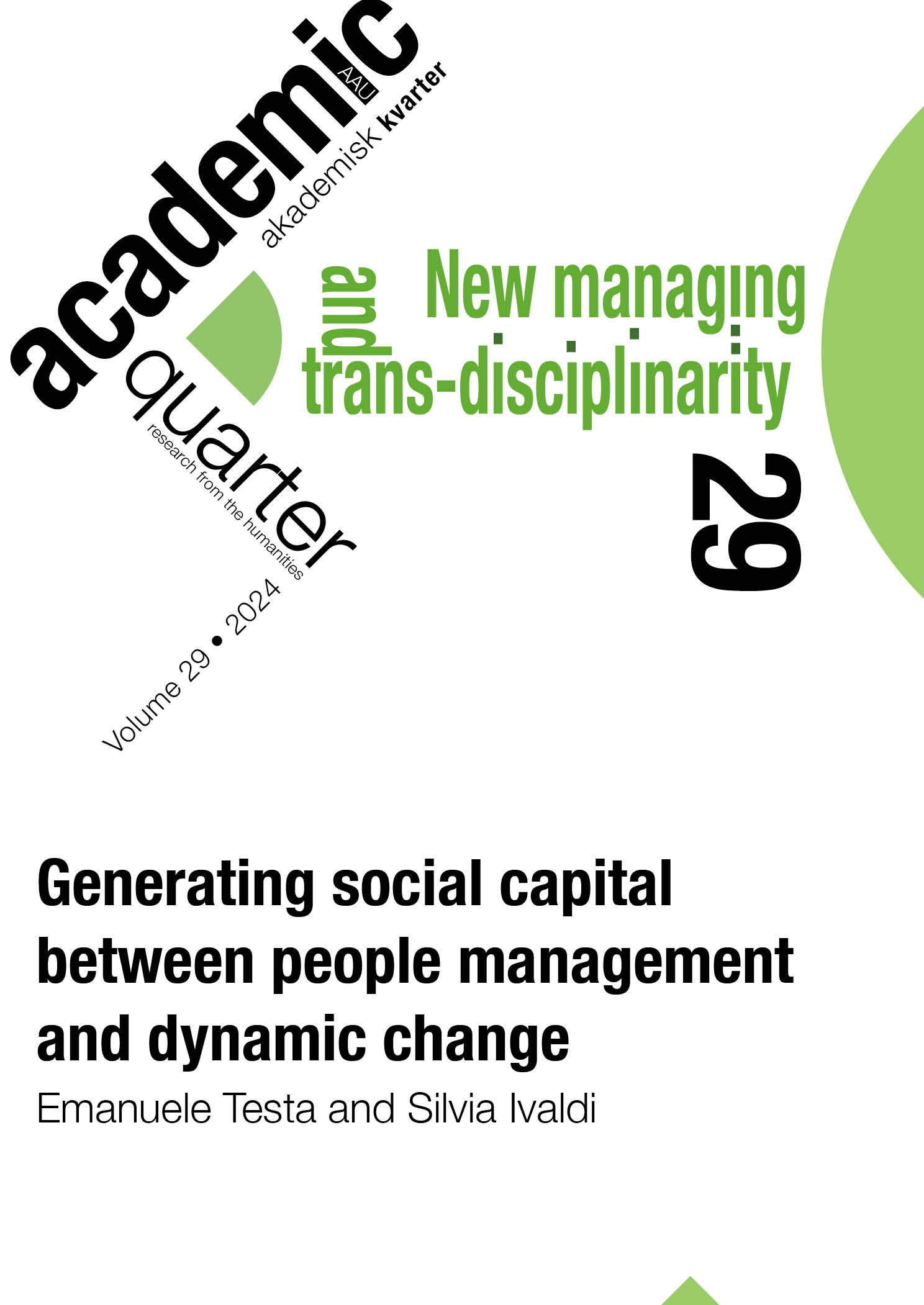Abstract | Abstract
This articlepresents an action-research experience as an emblematic expression of new ways of generating value and organizational processes. The subject is related to the management of pre-schools, in which civil society takes responsibility for micro-processes that guarantee the generation of collective value for the community and the maintenance of a connective tissue through which narratives, stories, and experiences take root. Stories become relationships, networks of trust and collaboration with widespread availability that translates civic consciousness into actions, initiatives, and projects.
The article’s contribution illustrates the challenges faced and the organizational processes activated with the different stakeholders involved in the system of activities considered, through a situated and conversational research-action approach (Shotter 2007), according to a dialogic research-action perspective (Shotter 2010). The results highlight the elements of social capital generated, as well as the critical issues that emerged in the work within the socio-organizational and community contexts.
Referencer
Engeström, Yrjö. 2009. “The Future of Activity Theory: A Rough Draft.” In Learning and Expanding with Activity Theory, edited by Annalisa Sannino, Harry Daniels, and Kris D. Guitérrez, 303–328. Cambridge: Cambridge University Press. https://doi.org/10.1017/CBO9780511809989.020
Fukuyama, Francis. 1995. “Social Capital and the Global Economy.” Foreign Affairs 74 (5): 89-103. https://doi.org/10.2307/20047302
Ginzburg, Carlo. 1979. “Spie. Radici di un paradigma indiziario.” In Crisi della ragione, edited by Aldo Gargani, 57–106. Torino: Einaudi.
Granovetter, Mark S. 1973. “The Strength of Weak Ties.” American Journal of Sociology 78 (6): 1360–1380. https://doi.org/10.1086/225469
Ivaldi, Silvia, and Giuseppe Scaratti. 2019. “Coworking Hybrid Activities Between Plural Objects and Sharing Thickness.” TPM – Testing, Psychometrics, Methodology in Applied Psychology 26 (1): 121–147. https://doi.org/10.4473/TPM26.1.7
Lanzara, Giovan Francesco. 1999. “Between Transient Constructs and Persistent Structures: Designing Systems in Action.” The Journal of Strategic Information Systems 8 (4): 331–349. https://doi.org/10.1016/S0963-8687(00)00031-7
Lin, Nan. 2017. “Building a Network Theory of Social Capital.” In Social Capital, edited by Nan Lin, Karen Cook, and Ronald S. Burt, 3–28. https://doi.org/10.4324/9781315129457-1
Mintzberg, Henry. 2009. Managing. London: Pearson Education.
Putnam, Robert. D. 1993. “The Prosperous Community.” The American Prospect 4 (13): 35–42.
Scaratti, Giuseppe. 2021. La ricerca qualitativa nelle organizzazioni. Pratiche di conoscenza situata e trasformativa. Milan: Cortina Editore.
Scaratti, Giuseppe, and Silvia Ivaldi. 2021. “Uniqueness and Generalization in Organizational Psychology: Research as a Relational Practice.” Frontiers in Psychology 12: Article 638240. https://doi.org/10.3389/fpsyg.2021.638240
Shotter, John. 2007. “With What Kind of Science Should Action Research be Contrasted?” International Journal of Action Research 3 (1-2): 65–92.
Shotter, John. 2010. “Situated Dialogic Action Research: Disclosing ‘Beginnings’ for Innovative Change in Organizations.” Organizational Research Methods 13 (2): 268–285. https://doi.org/10.1177/1094428109340347
Testa, Emanuele, Giuseppe Scaratti, and Lorenza Ferrai. Forthcoming. Apprendimento organizzativo e generazione di valore. Repertori di ricerca-azione. Trento: Erickson.
Zanarini, G. 1992. “Conoscenza e relazione nella prospettiva psicoanalitica. Introduzione.” In L’organizzazione nevrotica, edited by Manfred F. R. Kets de Vries and Danny Miller. Milan: Cortina Editore.
Weick, Karl E. 1995. Sensemaking in Organizations (Vol. 3). Thousand Oaks, CA: Sage Publications.

Dette værk er under følgende licens Creative Commons Navngivelse – Ikke-kommerciel – Ingen Bearbejdede Værker (by-nc-nd).
Copyright (c) 2024 Emanuele Testa, Silvia Ivaldi
